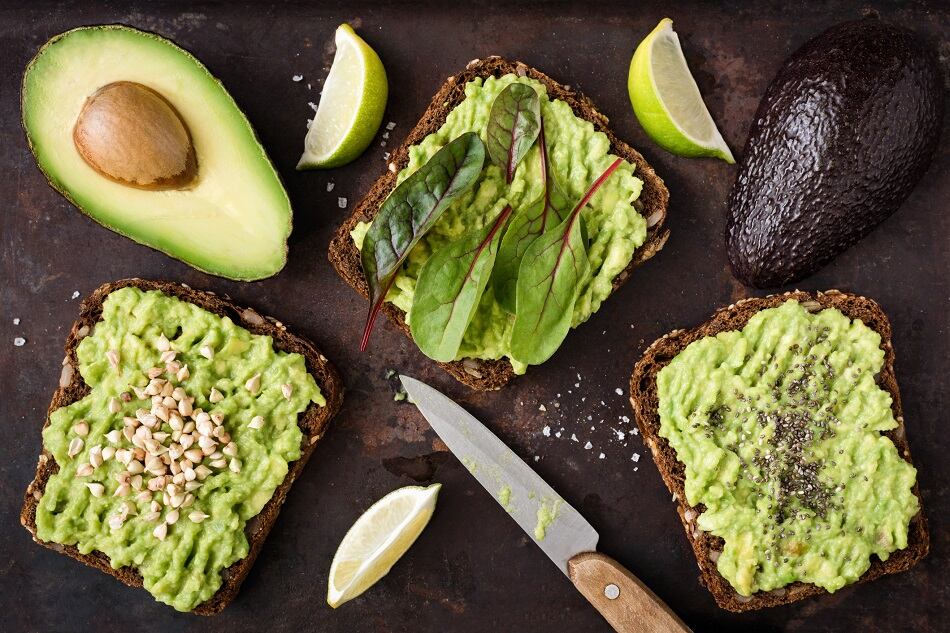"One of the purposes of the study [which was funded by the Hass Avocado Board] was to show that you can make these replacements and improve the satiety response and keep the calories the same," lead researcher of the study, Britt Burton-Freeman, Ph.D., director of the Center for Nutrition Research at Illinois Tech, and a member of Avocado Nutrition Science Advisory, told FoodNavigator-USA.
According to the researchers, despite their higher calories, fats have been considered less satiating than carbohydrates and protein, although this may not always be the case when looking at energy replacement (e.g. substituting refined carbohydrates for plant-based fats). Ideal macronutrient composition of a meal also remains under debate.
“Fat has been demonized since the '90s, and now carbohydrates have been under scrutiny. If we can’t eat fats and can’t eat carbohydrates, what can we eat? So there’s been a lot of push on protein, but we shouldn't’ be overdoing protein either," Dr Burton Freeman noted.
"One of the things that I’ve been interested in is the interaction of fats and fibers. The avocado is an interesting fruit because it contains both healthy fat and fiber," she said.
One medium size Hass avocado contains roughly 13.3g of monounsaturated fats, 10g of fiber, along with carotenoids and variety of bioactive compounds.
Dr Burton-Freeman claimed that fats and some fibers slow gastric emptying, delay nutrient absorption, modulate glucose and insulin responses, and alter gut hormones involved in satiety.
According to the researchers, few studies have focused on the role of nutrient combinations (particularly fat and fiber) to enhance satiety. In addition, satiety research has been primarily conducted on adults within a healthy weight range who may not benefit as much from dietary adjustments as overweight or obese individuals, they claimed.
Satiating effect of avocados compared to carbohydrates
The new research assessed the physiological effects of including whole and half fresh Hass avocados on hunger, fullness, and how satisfied study participants felt over a six-hour period.
Researchers evaluated these effects in 31 overweight and obese adults -- with a BMI (body mass index) between 25 and 32 -- in a randomized three-arm crossover clinical trial. These dietary changes were also shown to limit insulin and blood glucose excursions, further reducing the risk of diabetes and cardiovascular disease by adding healthy fats and fibers into a regular daily diet.
Participants were asked to consume a standardized dinner meal on the night before each study day to control variance from prior food and beverage intake. The next day, participants were given three breakfast meals: one was a low fat, high carbohydrate meal (a bagel sandwich without avocado, honeydew lemon, oatmeal, and a lemonade-flavored drink serving as the control meal. The two other meals contained either a half or whole Hass avocado served in 'hollowed out' bagels. The bagel sandwiches with half an avocado were supplemented with butter fat to keep total fat content similar between the two experimental avocado meals.
Using a question-based visual analog scale (VAS) assessment, participants were asked to rate their feelings of fullness, hunger, desire to eat, prospective consumption, and how satisfied they felt with the meal. While all three meals significantly suppressed hunger and prospective consumption shortly after eating, hunger, fullness, and how satisfied participants felt over the course of six hours was most higher among those who consumed meals with either a half or full avocado.
"The big thing was that they said that they just feel more satisfied with these meals (containing avocado)," Dr Burton-Freeman said.
Along with subjective VAS analysis, researchers observed that the hormones associated with satiety/appetite were measured in blood collected immediately after the VAS assessment and found that levels of PYY (an intestinal gut hormone associated with suppressing appetite) were higher with the whole avocado meals compared to the high-carbohydrate meal without avocado. In the high-carbohydrate meals, insulin (which can have a short-lived appetite suppressing effect) rose.
"The avocado meals increased these other peptide hormones (PYY) that are satiety peptides, that suppress hunger, increase meal satisfaction, and make you feel full," she said.
Making room for fats in a meal
The study makes a case for incorporating more healthy fats into meals to feel fuller longer, but also because fats can make meals more satisfying from a flavor standpoint, according to Dr Burton-Freeman.
"People have to understand that fats have a little over twice the calories that carbohydrates do, but they carry and improve flavor. It’s an opportunity to add healthy fats to your diet but also improve the flavors that you’re cooking with or incorporating into your meal," she added.
“There is no ‘one size fits all’ solution when it comes to optimal meal composition for managing appetite. However, understanding the relationship between food chemistry and its physiological effects in different populations can reveal opportunities for addressing appetite control and reducing rates of obesity, putting us a step closer to personalized dietary recommendations.”

